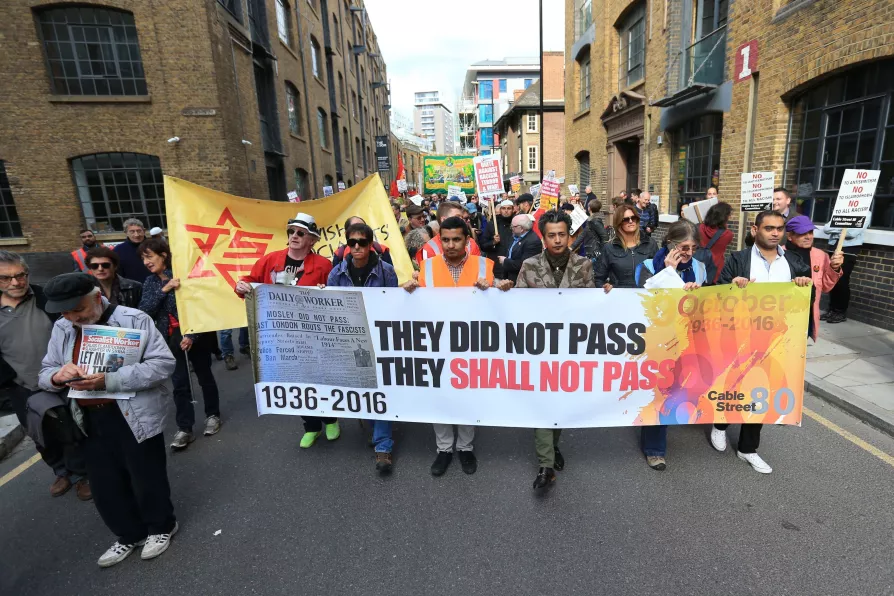RAMZY BAROUD offers six reasons why Netanyahu is prolonging conflict in the Middle East

 Marchers mark the 80th anniversary of the Battle of Cable Street in 2016
Marchers mark the 80th anniversary of the Battle of Cable Street in 2016
NEXT WEEKEND I will march with other anti-racists through East London and then co-chair a rally with local Bengali activist Julie Begum to mark the 85th anniversary of the Battle of Cable Street.
In 1936 fascism was advancing across Europe. Here in Britain, with nearly three million unemployed, mass hunger, hopelessness and a loss of faith in conventional politics, a wannabe aristocratic politician, Oswald Mosley, planned to make a show of strength in East London where his movement — the British Union of Fascists — had its biggest branches.
Those four branches with thousands of members and supporters, formed a horseshoe around an enclave where 60,000 working-class Jews lived in fear of daily violence from Mosley’s Blackshirts.

Once again Tower Hamlets is being targeted by anti-Islam campaigners, this time a revamped and radicalised version of Ukip — the far-right event is now banned by the police, but we’ll be assembling this Saturday to make sure they stay away, says JAYDEE SEAFORTH

The annual commemoration of anti-fascist volunteers who fought fascism in Spain now includes a key contribution from Italian comrades












